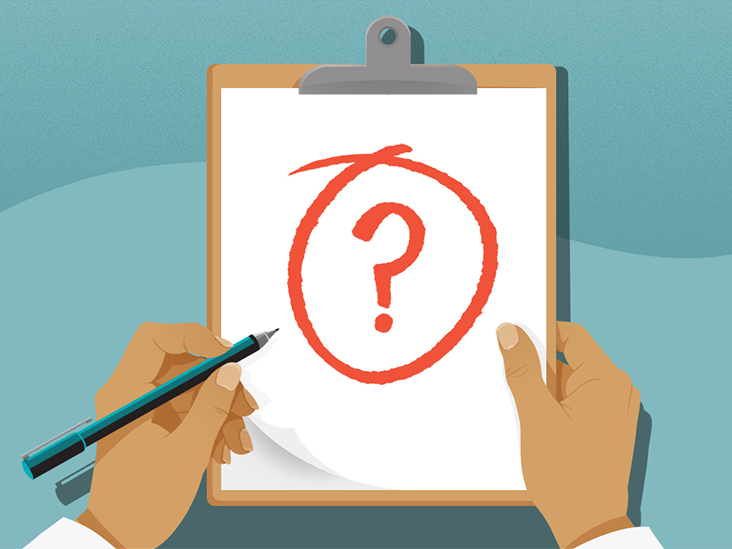Mood stabilizers are a type of medication that is used to treat bipolar disorder. There are many different types of mood stabilizers, and each one works differently for each person. In this blog post, we will provide a comprehensive list of all the mood stabilizers that are available on the market today. We will also discuss the pros and cons of each medication so that you can make an informed decision about which one is right for you.
Contents
- 1 What Are Mood Stabilizers?
- 2 Different Types of Mood Stabilizers
- 3 Uses of Different Types of Mood Stabilizers
- 4 How To Select From Different Types of Mood Stabilizers That Is Right For You?
- 5 Common Benefits of Different Types of Mood Stabilizers
- 6 Common Side-Effects of Mood Stabilizers
- 7 Tips To Keep In Mind While Taking Mood Stabilizers
- 8 Conclusion
What Are Mood Stabilizers?
 Mood stabilizers are a class of medications that are typically used to treat bipolar disorder. They work by evening out mood swings and helping to prevent manic or depressive episodes. Mood stabilizers can also be used to treat other conditions, such as anxiety disorders, depression, and schizophrenia.
Mood stabilizers are a class of medications that are typically used to treat bipolar disorder. They work by evening out mood swings and helping to prevent manic or depressive episodes. Mood stabilizers can also be used to treat other conditions, such as anxiety disorders, depression, and schizophrenia.
There are several different types of mood stabilizers, including antipsychotics, anticonvulsants, and lithium. Some mood stabilizers are FDA-approved for the treatment of bipolar disorder, while others are commonly used off-label for this purpose. Mood stabilizers are typically taken on a long-term basis, as they can take several weeks or months to reach their full effect.
The most common side effects of mood stabilizers include weight gain, dizziness, fatigue, and dry mouth. While these side effects can be bothersome, they are typically not severe enough to cause people to stop taking the medication. If you are experiencing any serious side effects from your mood stabilizer, be sure to talk to your doctor.
Mood stabilizers can be an important part of treatment for bipolar disorder and other mental health conditions. If you think you might benefit from a mood stabilizer, talk to your doctor about all of your options.
Different Types of Mood Stabilizers

There are many different types of mood stabilizers, and each one works in a slightly different way. Here is a brief overview of some of the most commonly used mood stabilizers:
Antipsychotics
Antipsychotic medications are typically used to treat schizophrenia, but they can also be effective for bipolar disorder. These medications work by blocking dopamine receptors in the brain. Common side effects of antipsychotics include weight gain, dry mouth, constipation, and drowsiness. These mood stabilizers can also cause movement disorders, such as Parkinson’s disease.
This is a newer antipsychotic medication that has a lower risk of causing movement disorders. It is also less likely to cause weight gain than other antipsychotics.
Olanzapine (Zyprexa)
This antipsychotic medication can be very effective for bipolar disorder, but it has a high risk of causing weight gain and diabetes.
Risperidone (Risperdal)
This is another older antipsychotic medication that can be effective for bipolar disorder, but it also has a high risk of side effects like weight gain and movement disorders.
Asenapine (Saphris)
This medication is a newer antipsychotic that is effective for treating bipolar disorder. It has a lower risk of causing weight gain and diabetes than other antipsychotics.
Chlorpromazine (Thorazine)
This older antipsychotic medication can be very effective for treating bipolar disorder, but it has a high risk of causing serious side effects like low blood pressure and seizures.
Fluphenazine (Prolixin)
This older antipsychotic medication can be effective for treating bipolar disorder, but it also has a high risk of side effects like weight gain and movement disorders.
Anticonvulsants
Anticonvulsant medications were originally developed to treat epilepsy, but they are also commonly used as mood stabilizers. These medications work by stabilizing electrical activity in the brain. Common side effects of anticonvulsants include dizziness, drowsiness, nausea, and weight gain.
Carbamazepine (Tegretol)
This is one of the oldest and most well-known anticonvulsant medications. It is effective for treating bipolar disorder, but it can cause serious side effects like low blood sodium levels and kidney damage.
Divalproex sodium (Depakote)
This medication is commonly used to treat bipolar disorder and migraines. It can cause stomach problems, hair loss, and liver damage.
Lamotrigine (Lamictalcommonly used as a mood stabilizer. These medications work by stabilizing electrical activity in the brain. Common side effects of anticonvulsants include dizziness, drowsiness, nausea, and weight gain.)
This is a newer anticonvulsant that is considered to be very effective for treating bipolar disorder. It has a lower risk of causing side effects like stomach problems and hair loss than other anticonvulsants.
Lithium
Lithium is one of the most well-known mood stabilizers. It has been used to treat bipolar disorder for over 50 years. Lithium works by balancing out neurotransmitters in the brain. Common side effects of lithium include diarrhea, vomiting, tremors, and weight gain. Lithium can also cause serious side effects like kidney damage and thyroid problems.
Uses of Different Types of Mood Stabilizers

There are many uses of mood stabilizers. Some people use them to treat bipolar disorder, while others use them to manage their depression or anxiety. Mood stabilizers can also be used to help with sleep disorders, PMS, and even ADHD. Here is a list of mood stabilizers and their uses:
Bipolar Disorder
One of the most common uses of mood stabilizers is to treat bipolar disorder. Bipolar disorder is a mental illness that causes extreme mood changes. People with bipolar disorder may have very high highs, called mania, and very low lows called depression. Mood stabilizers can help even out these mood swings.
Depression
Mood stabilizers are also used to treat depression. Depression is a mental illness that causes feelings of sadness, hopelessness, and fatigue. Mood stabilizers can help lift your mood and give you energy.
Anxiety
Mood stabilizers are sometimes used to treat anxiety. Anxiety is a mental illness that causes fear, worry, and nervousness. Mood stabilizers can help calm your nerves and ease your anxiety symptoms.
Sleep Disorders
Mood stabilizers can also be used to treat sleep disorders. Sleep disorders are conditions that make it hard to fall asleep or stay asleep. Mood stabilizers can help you get a good night’s sleep.
PMS
Mood stabilizers are sometimes used to treat PMS or premenstrual syndrome. PMS is a condition that causes mood swings, irritability, and bloating before your period. Mood stabilizers can help ease these symptoms.
ADHD
Mood stabilizers are sometimes used to treat ADHD or attention deficit hyperactivity disorder. ADHD is a condition that causes trouble paying attention, impulsiveness, and hyperactivity. Mood stabilizers can help improve focus and concentration.
How To Select From Different Types of Mood Stabilizers That Is Right For You?

Selecting a mood stabilizer can be a daunting task. There are so many different types and it is hard to know which one will work best for you. The good news is that there is a Mood Stabilizer Quiz that can help you select the right type of mood stabilizer for your needs.
The quiz takes into account your specific situation and provides you with a list of options. It is important to remember that not all mood stabilizers are created equal. Some may work better for certain people than others. It is important to speak with your doctor about which type of mood stabilizer would be best for you.
Once you have taken the quiz, it is time to start researching the different types of mood stabilizers that are available. Some of these factors that can help you to narrow down your choices include:
Side effects: Every medication comes with the potential for side effects. Some people are more sensitive to these than others. It is important to research the possible side effects of each type of mood stabilizer before making a decision.
Efficacy: Not all mood stabilizers are equally effective. Some may work better for certain types of bipolar disorder than others. It is important to speak with your doctor about which type of mood stabilizer would be most effective for your particular situation.
Cost: Mood stabilizers can vary in cost, depending on the brand and formulation. Generic options are often available, which can save you money. Speak with your doctor or pharmacist about which option would be best for you.
Once you have considered all of these factors, it is time to make a decision. Remember, there is no wrong answer when it comes to choosing a mood stabilizer.
Common Benefits of Different Types of Mood Stabilizers

There are several types of mood stabilizers on the market, each with its unique benefits. Here is a comprehensive list of the different types of mood stabilizers and their common benefits:
Helps To Maintain Mood
One of the main benefits of mood stabilizers is that they help to maintain the mood. This is especially beneficial for people who suffer from bipolar disorder or other mental health conditions that cause drastic mood changes. Mood stabilizers can help to even out the highs and lows, making it easier to function on a day-to-day basis.
Reduce Anxiety
Mood stabilizers can also be effective in reducing anxiety. For many people, anxiety can be just as debilitating as any mood disorder. By reducing anxiety, mood stabilizers can help make it easier to cope with everyday stressors.
Improves Sleep Quality
Another common benefit of mood stabilizers is that they improve sleep quality. Many people with mental health conditions struggle with insomnia or poor sleep quality. People with bipolar disorder, for example, often experience manic episodes that make it difficult to sleep. Mood stabilizers can help to improve sleep quality by keeping moods stable and reducing anxiety.
There are many other benefits of mood stabilizers that are not present in this list here. If you think a mood stabilizer may be right for you, speak to your doctor about the potential benefits.
Common Side-Effects of Mood Stabilizers

Sometimes there can be mild side effects from taking mood stabilizers, such as:
Feeling-Dizzy
One of the main side effects of taking mood stabilizers is feeling dizzy. This is usually only a temporary side effect that goes away after a few days of taking the medication. If you are feeling dizzy, it is important to drink plenty of fluids and avoid driving or operating heavy machinery.
Headache
Another common side effect of mood stabilizers is headaches. If you are experiencing headaches, it is important to take ibuprofen or another over-the-counter pain reliever. If the headaches persist, it is important to contact your doctor.
Nausea
Some people may also experience nausea when taking mood stabilizers. If you are feeling nauseous, it is important to drink plenty of fluids and eat small, frequent meals. It is also important to avoid drinking alcohol while taking mood stabilizers.
Fatigue
Fatigue is another common side effect of mood stabilizers. If you are feeling fatigued, it is important to get plenty of rest and exercise regularly. It is also important to avoid caffeine while taking mood stabilizers.
Dry Mouth
Another common side effect of mood stabilizers is dry mouth. If you are experiencing dry mouth, it is important to drink plenty of fluids and chew sugar-free gum or suck on sugar-free hard candy. It is also important to avoid alcohol and tobacco products.
Weight Gain
Some people may also experience weight gain when taking mood stabilizers. If you are concerned about weight gain, it is important to eat a healthy diet and exercise regularly. It is also important to talk to your doctor about your concerns.
These are just a few of the most common side effects of taking mood stabilizers. If you are experiencing any side effects, it is important to contact your doctor.
Tips To Keep In Mind While Taking Mood Stabilizers

Taking mood stabilizers can be very helpful in managing mood swings and other symptoms of mental disorders. However, there are a few things to keep in mind while taking them. Here are some tips:
-Make sure to take them as prescribed by your doctor or psychiatric medication. Taking too much or too little of the medication can be ineffective or even dangerous.
-Be aware that mood stabilizers may cause side effects such as drowsiness, weight gain, or dry mouth. These side effects usually go away after a few weeks of taking the medication.
-Do not stop taking mood stabilizers abruptly, as this can cause withdrawal symptoms such as dizziness, headache, or nausea. Consult with your doctor before making any changes to your medication.
-Mood stabilizers are most effective when used in combination with other treatments such as therapy or support groups.
If you or someone you know is struggling with a mental disorder, please seek professional help. Mood stabilizers can be an important part of treatment, but they are not a cure. With proper treatment, however, many people with mental disorders can lead happy and productive lives.
Conclusion
Mood stabilizers are an important part of managing bipolar disorder. They can help to control the highs and lows of the illness and make it easier to manage day-to-day. If you are considering starting a mood stabilizer, be sure to talk to your doctor about the risks and benefits.
There are many different types of mood stabilizers available, so there is likely one that can meet your needs. Be sure to ask your doctor about any potential side effects and how the medication may interact with other medications or supplements you are taking. With proper care, you can find a mood stabilizer that works for you and helps you maintain stability in your life. You can also find more information about bipolar disorder and mood stabilizers by visiting us.
Hope this article was of help to you! If you are suffering from mental health disorders, you may seek help from Therapy Mantra. We have a team of highly trained and experienced therapists who can provide you with the tools and skills necessary for overcoming mental health issues. Contact us today to schedule an online therapy or download our free Android or iOS app for more information.


